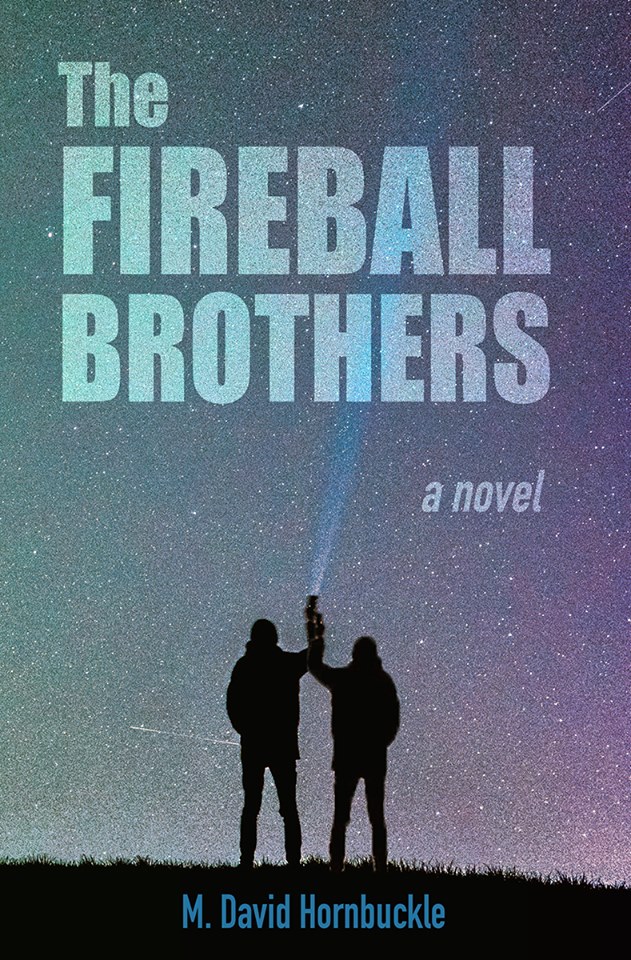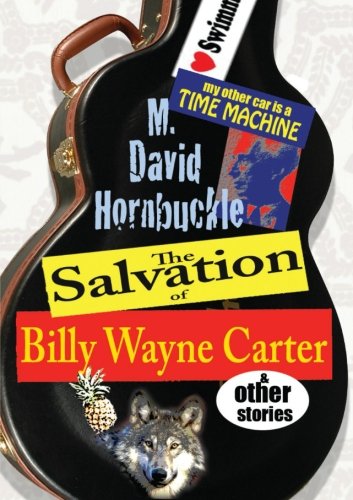A conversation with David Hornbuckle about Alabama meteors and his new novel.
A synopsis of The Fireball Brothers by David Hornbuckle, published by AWC’s beloved Livingston Press:
In 1959, two teenage brothers in rural Alabama are swimming in a pond when a fireball falls from the sky and lands in the water near them. When they come out, they are fused together, but nobody can figure out the cause. A doctor in New Orleans claims he can help them. To raise money for the surgery, they travel throughout the Southeast playing music. A wily reporter from Tupelo named Munford Coldwater follows their story as they meet snake oil salesmen and carnival barkers who try to take advantage of them. Filled with atmospheric music and setting, this novel mixes love, family, race, and political intrigue.
AS: Welcome David. Let’s talk about the synergy between local history and fiction. You mention that part of the story is rooted in the experience of Billy Field, a beloved Tuscaloosa film-maker. How did you work that into the story?
DH: I learned about the Sylacauga meteorite after I'd already written a good chunk of the book. Here I was writing a story about a fireball that falls out of the sky and changes the lives of this family, and I find out that a woman in Sylacauga named Ann Hodges was actually struck by a meteorite just a few years before the time when my story takes place. She is actually the only person to be physically hit by an object falling from space, and it happened in Alabama. It seemed like I couldn't really tell the story without at least acknowledging it.
I talked to Billy when I found out he'd made a documentary about the incident in Sylacauga However, that's HIS story, so I didn't work it into my book as much as I could have. He actually has a copywrite (or whatever the proper legal term for ownership of this sort of thing is) on the story of the family that happened to. In the final draft, I actually removed a couple of references to the Hodges meteorite incident because I didn't want to overstep my bounds there.
AS: Would you consider this to be a science fiction book?
DH: That wasn't my intention, but if people like sci-fi, they might like it. Some of the earliest books I read were by authors like Ray Bradbury, but as a teenager I became interested in writers who use elements of sci-fi in the service of something... else. Kurt Vonnegut comes to mind, or even some of Thomas Pynchon's work. I like what writers like Kelly Link are doing in bringing elements of fantasy and fairy tale in to stories that don't fit easily into a genre. And I guess that's what I was trying to do in this book--using elements of sci-fi and fantasy in a book that is really just about people, which to my mind is more of what gets called "literary fiction."
To the extent that this story is sci-fi, I think it comes more from my sense of surrealism than any real intention to do the kinds of things that science fiction often tries to do (i.e. warn/predict about dystopian futures, etc -- not that it's limited to that). Space ships and werewolves are my melting clocks.
AS. This is your first book in ten years. How does it relate to what you've done in the past, if at all?
DH: My previous full-length novel--Zen, Mississippi--also deals with issues of Southern identity. Fireball plays around with the idea of "space" and all the various ways that we use that word, and Zen, MS does something similar with the idea of time. So, in a way, this is my Time/Space series.
Munford Coldwater is a character in both novels, but Zen, MS is contemporary, so the character is older. Fireball takes place in 1959 when Munford is much younger.
My novella, The Salvation of Billy Wayne Carter, is about a second Civil War that is fought more on cultural grounds than political. The war is over things like what music you should listen to. In a way, it's a meditation on the concept of post-modernism and where we go from there. I wrote it when I was super young, and it shows, but there are some good parts I think.
AS. Thank you so much for taking the time to chat with me, David. In the spirit of sharing great writing on the southern scene, what three fiction stories by southern writers would you share?
DH. Tough to narrow down three short stories, but here are three recentish stories by writers I like: “Shiner” by James Braziel, “Mushroom Politique” by Adam Latham, and “When the Boys Went” by Heidi Espenscheid Nibbelink.
BOOK RELEASE PARTY INVITATION
You can catch David Hornbuckle at his book release party in Birmingham, Alabama on April 20th, 2019. There will be free fiddle music, cocktails, fiction, and the best of Alabama.
M. David Hornbuckle lives in Birmingham, Alabama where he teaches English at the local university. Over the years, his career has included journalism, technical writing, and bee farming. He is also a musician, most known for his former bands PopCanon and the M. David Hornbuckle Dixieland Space Orchestra. In addition, Hornbuckle is the founding editor of Steel Toe Review: A Journal of Southern Arts and Literature. This is his third book.




